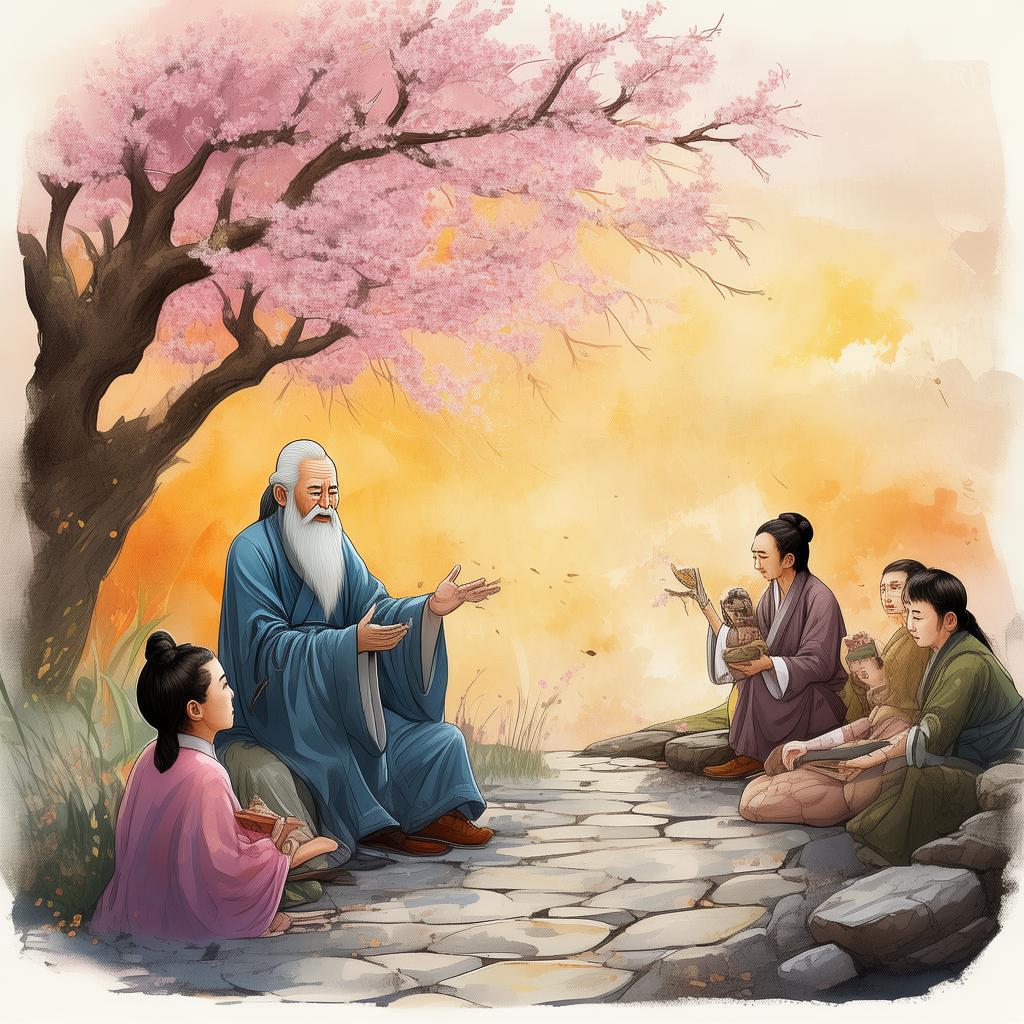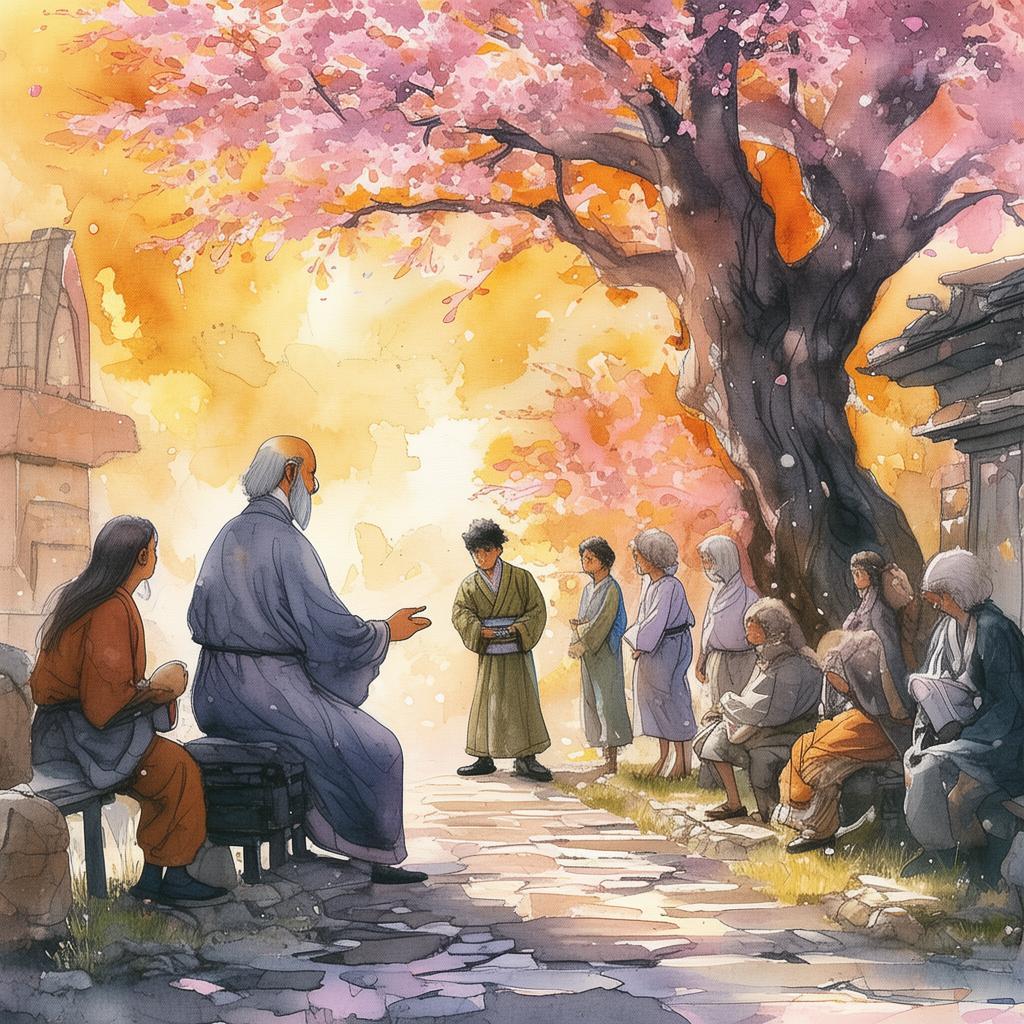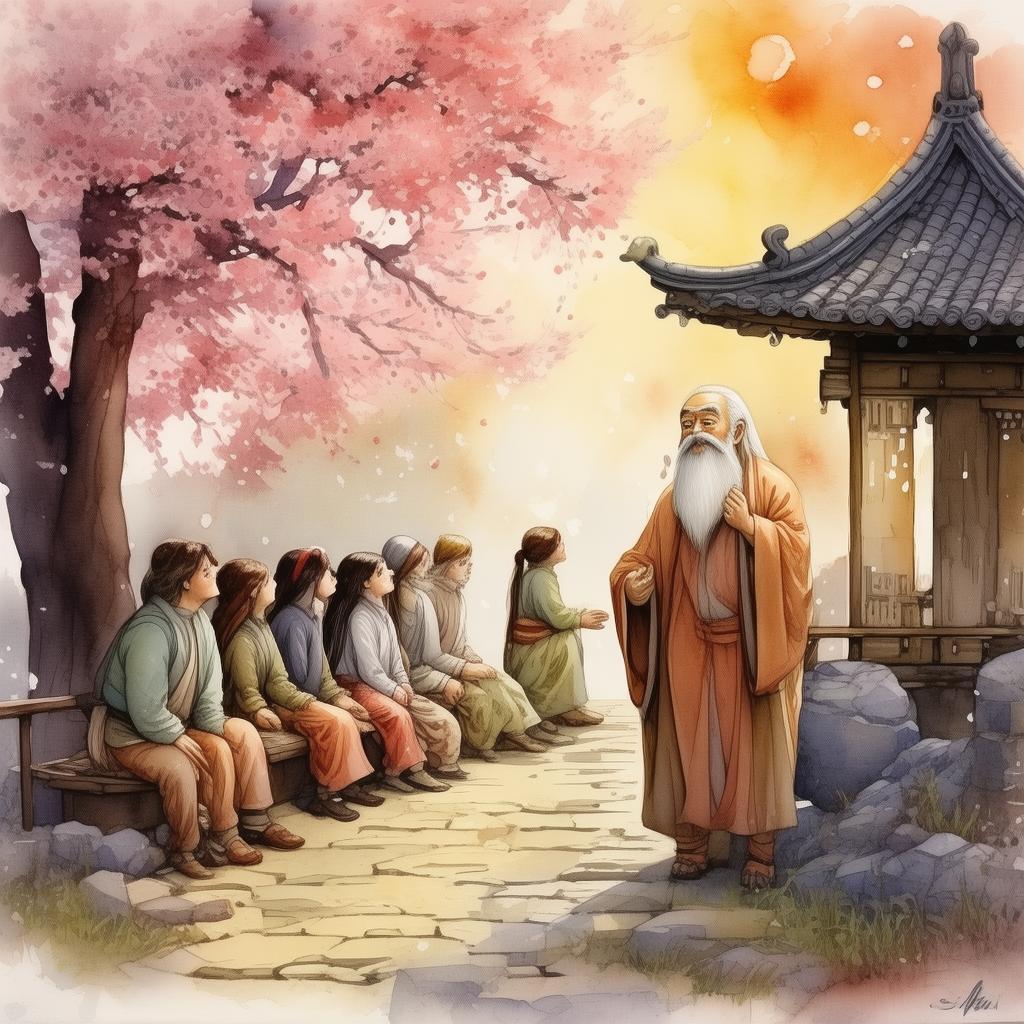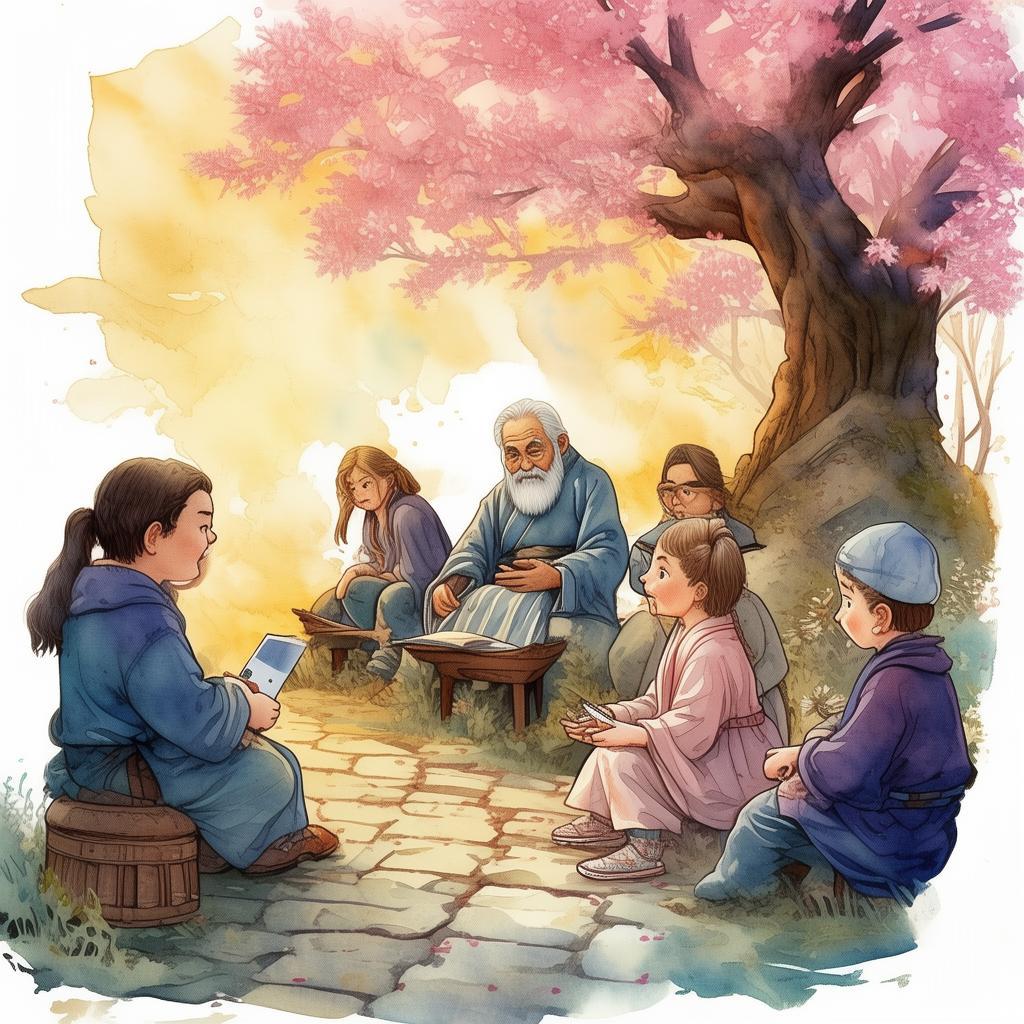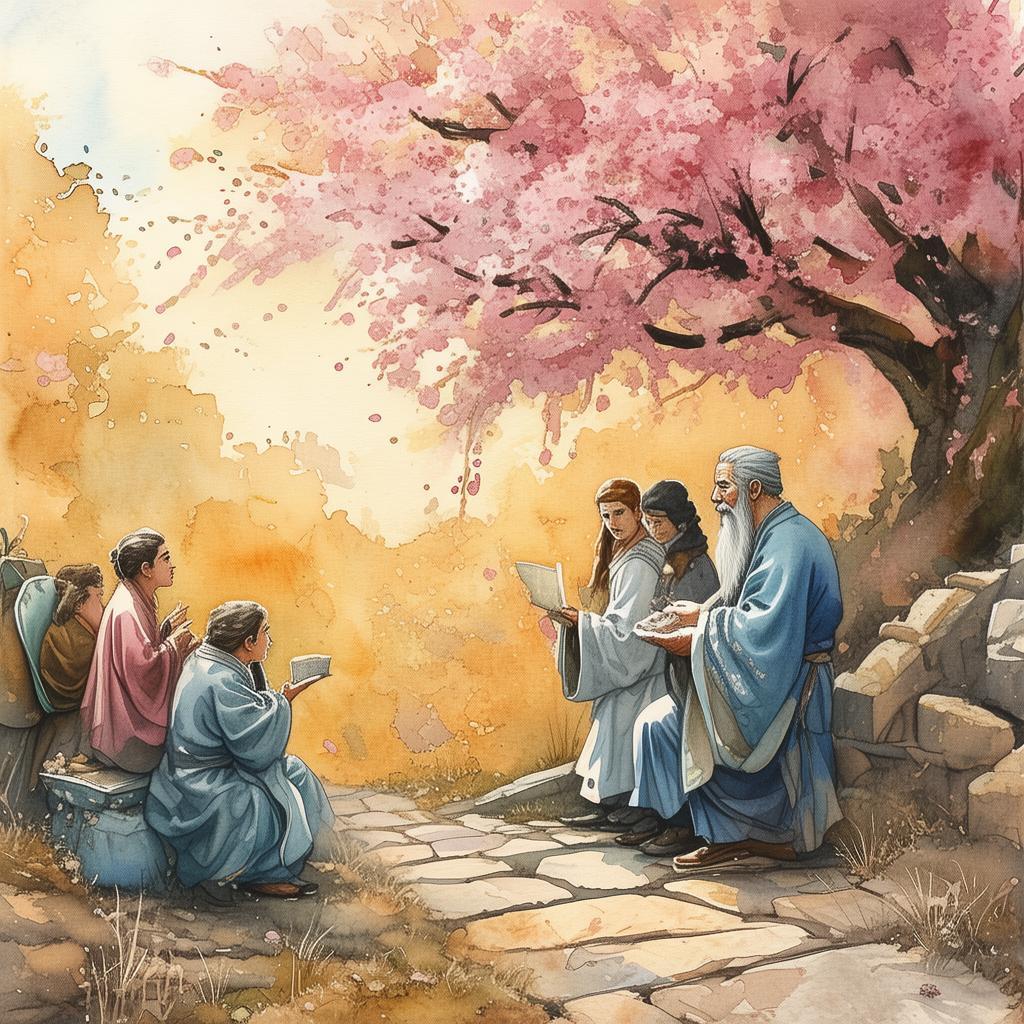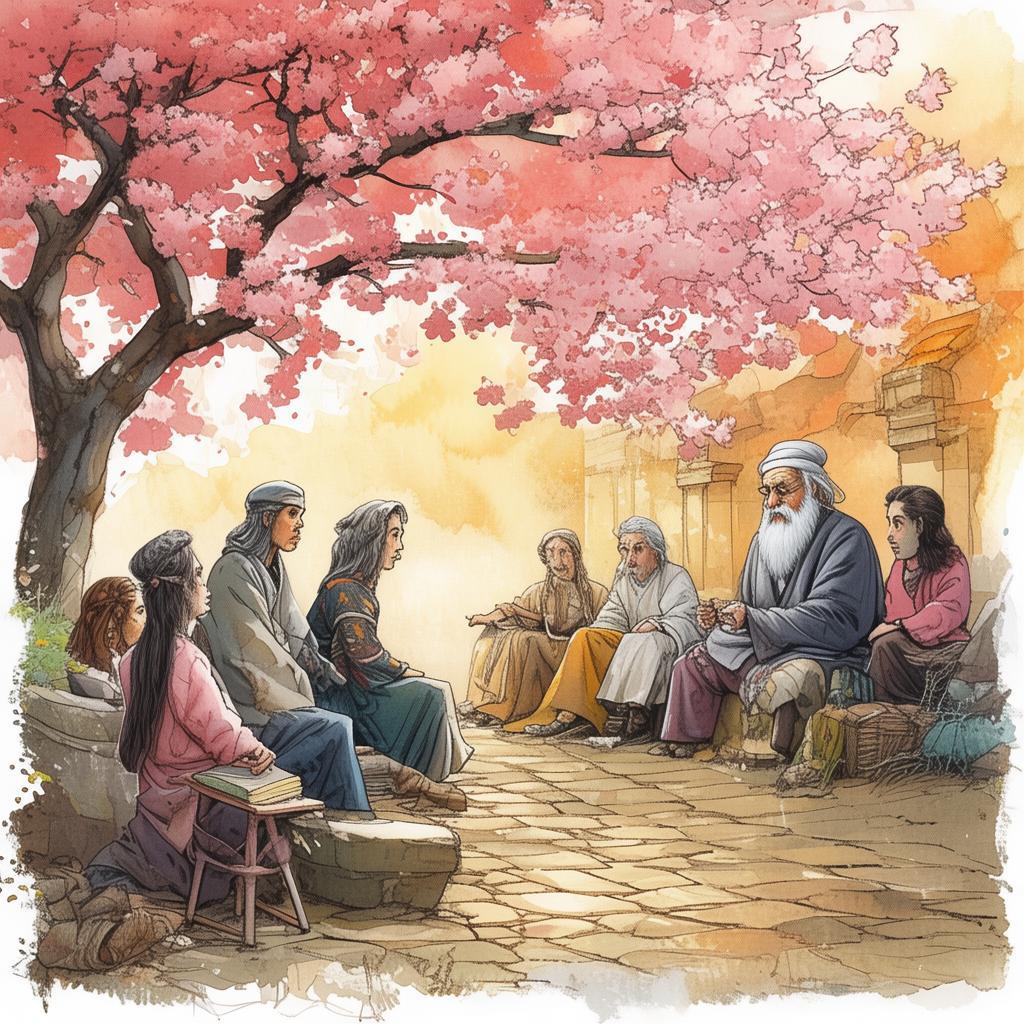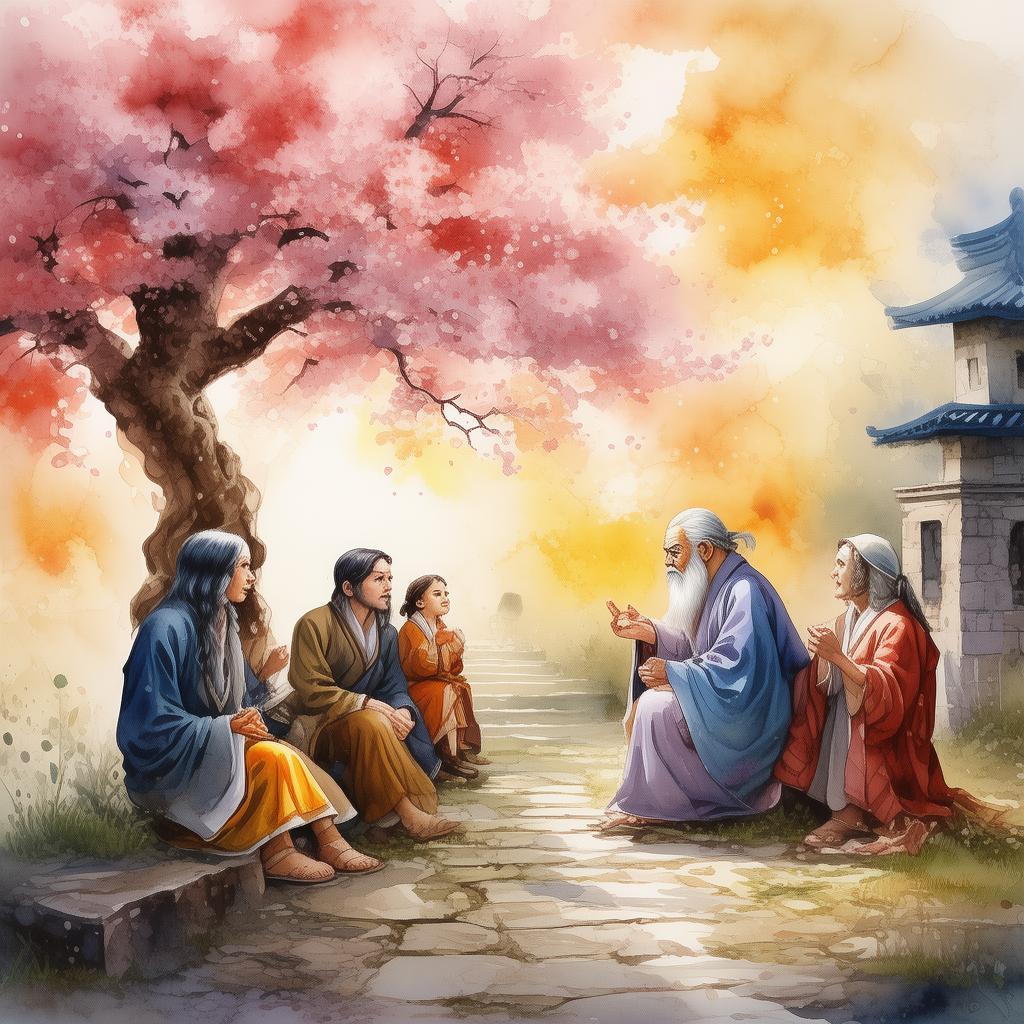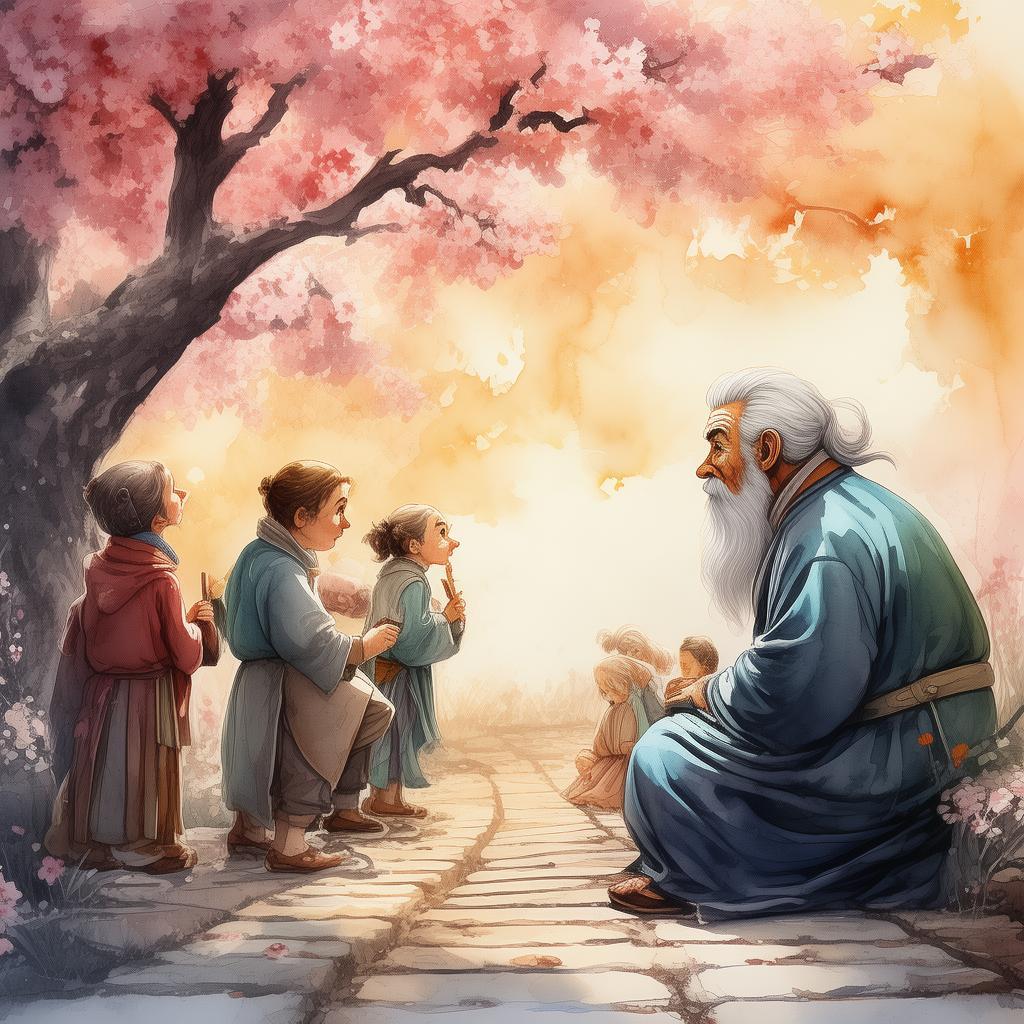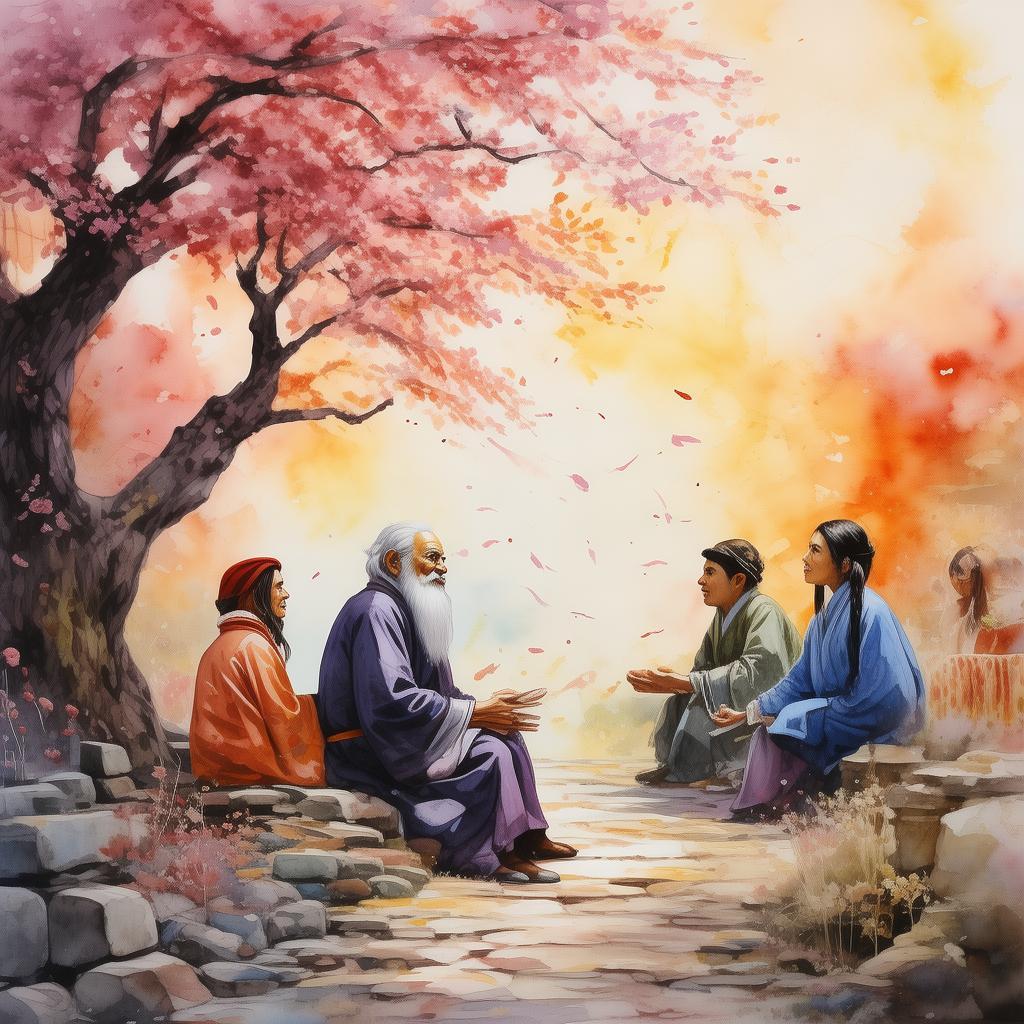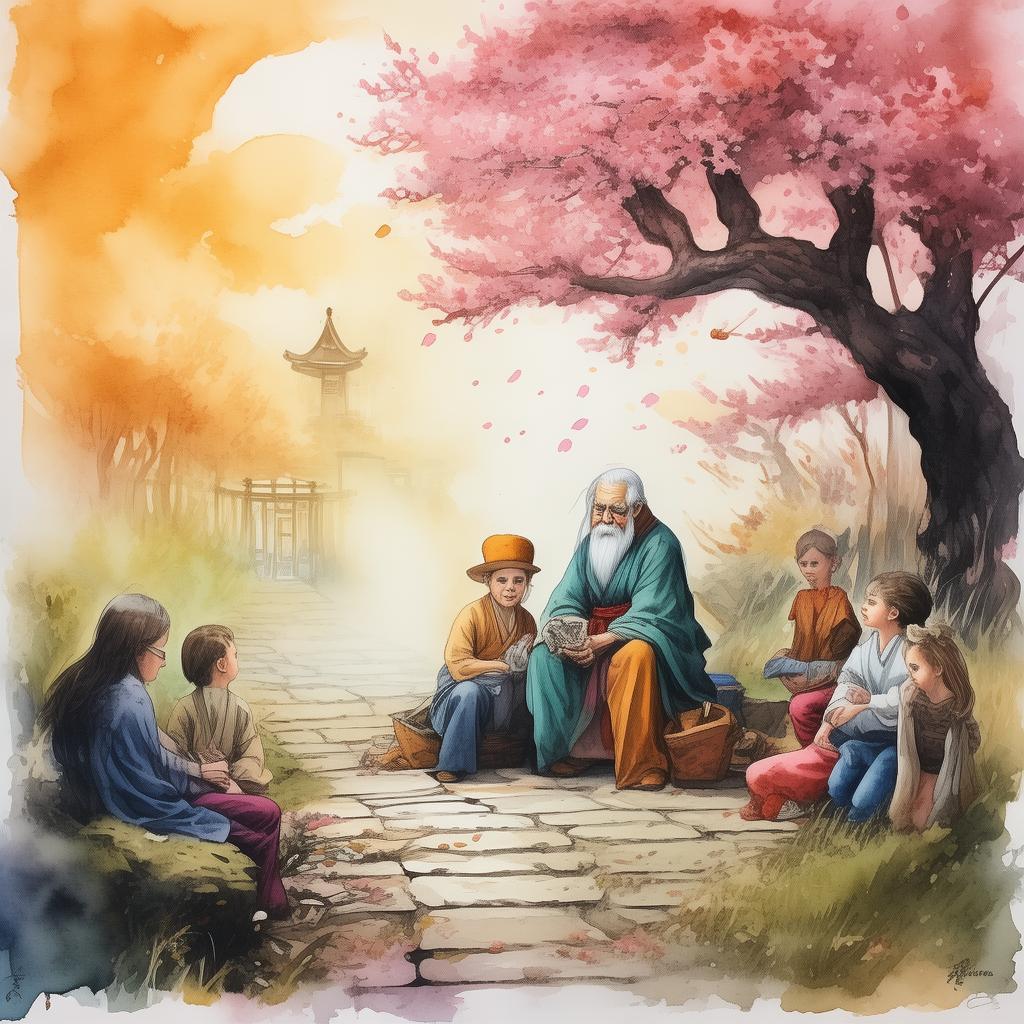The Melancholic Tale of the Dying Willow
In the heart of a once-bustling village, there stood a willow tree whose branches swayed with the whispers of the wind. It was said that the tree, known as the Dying Willow, had witnessed the ebb and flow of countless lives. The villagers spoke of it in hushed tones, for it was not just a tree but a living, breathing entity that seemed to carry the weight of their collective sorrow.
The idiom 'a dying willow' had been born from the heartbreak of a young girl named Li. Her father, a renowned herbalist, had passed away suddenly, leaving her mother to fend for herself and her younger brother. Desperate for a cure for her father's illness, Li had ventured deep into the forest, where the Dying Willow stood as a beacon of hope amidst the dense foliage.
Li had approached the tree, her heart heavy with grief and her eyes brimming with tears. She whispered her plea to the Dying Willow, asking for a cure for her father. The tree, sensing her sorrow, had whispered back, promising a way to save him.
Days turned into weeks, and Li worked tirelessly, collecting leaves and roots from the Dying Willow. She boiled and brewed them, concocting a potion she believed would heal her father. But as the days passed, her father's condition worsened, and Li's hope dimmed.
One fateful evening, Li returned to the Dying Willow, her heart shattered. She had failed. As she touched the tree, she felt a surge of energy, and the potion in her hands began to glow. In that moment, she realized that the Dying Willow had not given her a cure for her father; it had given her the strength to endure her loss.
Li returned home, and though her father's illness could not be reversed, the knowledge that the Dying Willow had given her the courage to carry on brought solace. The idiom 'a dying willow' was born from that night, a symbol of resilience and the enduring spirit of those who face adversity.
As years passed, the Dying Willow continued to stand in the heart of the village, a silent witness to the lives that had passed through its branches. Its leaves, once vibrant green, had turned a pale yellow, and its branches drooped, a testament to its age and the weight of the sorrow it had carried.
One day, a young artist named Xiao came to the village. He had heard tales of the Dying Willow and its melancholic beauty. He set up his easel beneath its gnarled roots and began to paint. As he worked, he felt a connection to the tree, as if it were speaking to him through its twisted branches.
Xiao painted the Dying Willow in all its glory, capturing its melancholic essence. As he finished, he realized that the tree had not only inspired him but had also transformed him. The Dying Willow had become a symbol of hope, a reminder that even in the face of sadness, there is beauty to be found.

The villagers gathered around Xiao's painting, their eyes reflecting the same sorrow that had once surrounded the Dying Willow. They saw not just a painting but a mirror of their own lives, a reminder that while sadness is inevitable, it is also possible to find strength and beauty in its presence.
The Dying Willow, once a symbol of despair, had become a symbol of hope. It stood as a testament to the resilience of the human spirit, a reminder that even in the darkest times, there is light to be found.
And so, the idiom 'a dying willow' continued to evolve, a story of transformation that transcended time and space. It was a story of loss, of sadness, and of the enduring power of hope.
✨ Original Statement ✨
All articles published on this website (including but not limited to text, images, videos, and other content) are original or authorized for reposting and are protected by relevant laws. Without the explicit written permission of this website, no individual or organization may copy, modify, repost, or use the content for commercial purposes.
If you need to quote or cooperate, please contact this site for authorization. We reserve the right to pursue legal responsibility for any unauthorized use.
Hereby declared.
